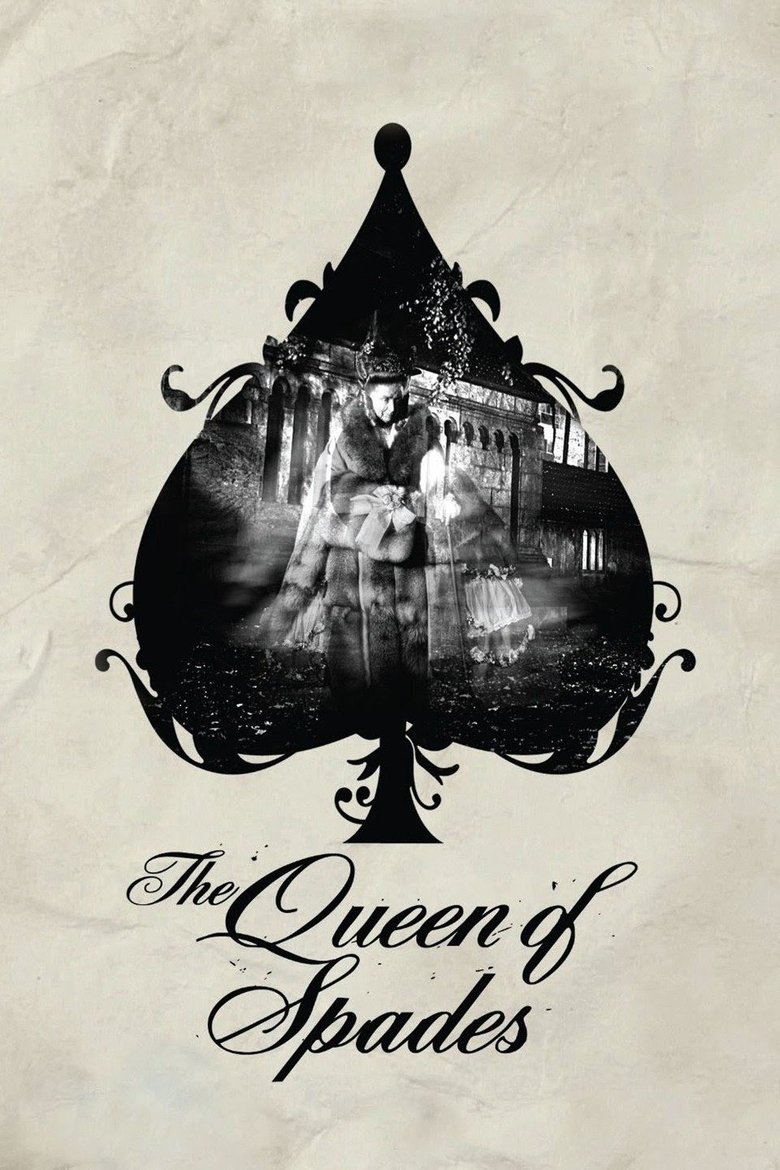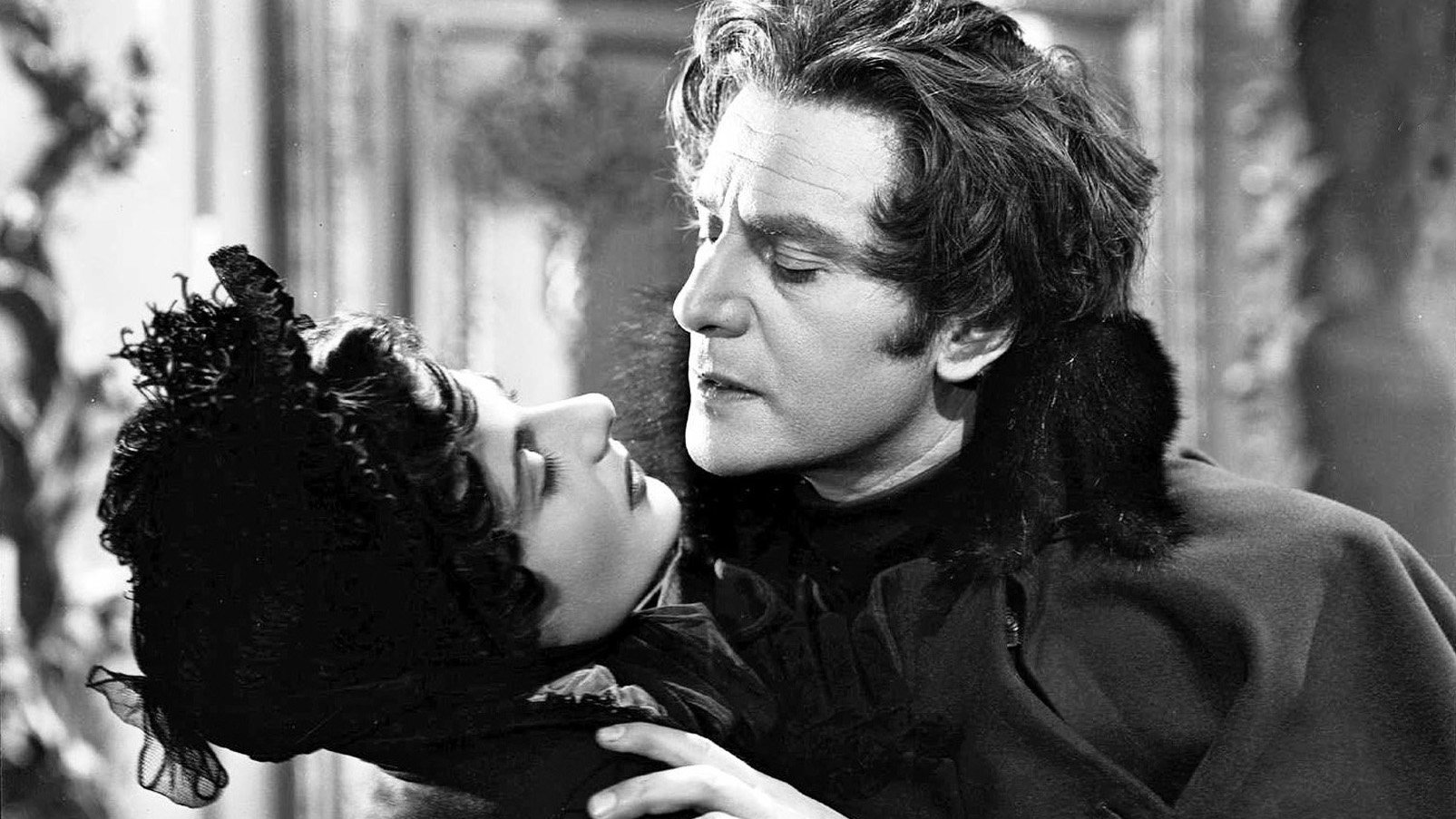
The Queen of Spades
An elderly countess strikes a bargain with the devil and exchanges her soul for the ability to always win at cards. An army officer, who is also a fanatic about cards, murders her for the secret, then finds himself haunted by the woman's spirit.

John Chard@John Chard
The Strange Secrets of the Count de Saint Germain.
The Queen of Spades is directed by Thorold Dickinson and adapted to screenplay by Rodney Ackland and Arthur Boys from the story written by Alexander Pushkin. It stars Anton Walbrook, Edith Evans, Yvonne Mitchell and Ronald Howard. Music is scored by Georges Auric and cinematography by Otto Heller.
A Tale of Old St. Petersbvrg.
"In 1806 the craze for gambling had spread throughout Russia. Faro-a simple card game similar to our snap-was all the fashion, and fortunes were won and lost on the turn of a card. As a result there arose many superstitions concerning the cards-one of these was the evil influence of THE QVEEN OF SPADES."
The dead shall give up their secrets.
Haunting, poetic, lyrical, romantic and visually arresting, Thorold Dickinson's take on the Pushkin story is a magnificent picture of many wonders. It's a film that (thankfully) is hard to pigeon hole, it's very unique, a uniqueness that marks it out as an oddity of sorts, ensuring it has stayed as a cult classic rather than a mainstream one. However, now widely available on DVD (the Optimum Region 2 issue is a spankingly fine transfer), and with Martin Scorsese lending his weight to the film's greatness, it's hoped that more people will get to see and embrace this masterpiece.
Dickinson (Gaslight) was only brought in at the last minute, literally days before the picture went into production. Armed with only a tiny budget and confined to the stages of Welwyn Studios, the director gave a lesson in classic film making. The story is a more than solid source to work from, Walbrook's Tsarist Captain Suvorin aspires to gain wealth by learning Countess Ranevskaya's (Evans) secret to wining at the card game Faro. Working from a book he located about people making deals with the Devil, Suvorin worms his way into the affections of the Countess' ward, Lizaveta Ivanova (Mitchell), so as to get close to the aged and fragile Countess and put the squeeze on the old dear. He is obsessed and oblivious to the feelings of others and ignorant to the age old adage about being careful about what you wish for...
Filmed in subtle black and white by Otto Heller (They Made Me A Fugitive), film is big on shadows, odd camera angles, clinical sound work and haunting imagery. Atmosphere is everything in a film like this, and this has it in abundance, even during the more exuberant passages, such as the gaiety of a dance, there's a disquiet hanging in the air, William Kellner's brilliantly baroque sets observers of impending doom. A number of images burn into the soul, a spider climbing its web, a doused candle and the eerie sight of distorted figurines in glass jars, these are just some of the shots worthy of inspection. Mirrors, too, play a prominent part in proceedings, hauntingly so, while many of the characters have an other worldly sheen to them.
3, 7 & Ace.
Mostly the film is highly thought of by those that have seen it, what negative reviews I have come across appear to be written by horror fans unhappy with not getting the horror film suggested by tag words such as ghost and the Devil. For the first hour it's pretty much about characterisations, psychological make ups and back story, it's not until the hour mark when things start moving towards the spooky. But this film is not horror, as mentioned earlier, it's hard to pigeon hole it for it covers a number of bases. It's more in line with Rebecca and either of the Gaslight movies, an opulent period piece with supernatural overtones, while the visual style of it is very much like The Spiral Staircase. If you like those movies? Then it's pretty nailed on that this is the movie for you. Cast are terrific, Walbrook (Gaslight/The Red Shoes) is intense and maniacal, Evans (The Importance of Being Earnest ) is oddly scary but pitiful, Mitchell is beautiful but perfectly staid and Howard (son of Leslie) is straight backed and gentleman like.
From the opening credits that are off kilter written on scratchy looking paper, accompanied by Auric's blunderbuss music score, to the "devilment" of the denouement, this is a classic Ealing film for true classic film fans. 10/10

CinemaSerf@Geronimo1967
This certainly has the feel of a short story to it. It takes it's time getting there, but the denouement is surprisingly effective. It all centres on the increasingly obsessive captain of engineers "Herman" (Anton Walbrook) who spends most of his cold and snowy St. Petersburg evenings with his aristocratic friends as they play faro. He never joins in, but that is because he has learned that the grandmother of one of his friends supposedly sold her soul to the devil in return for a secret that made her invincible at the card table. Determined to discover this secret, he befriends her confident "Lizaveta" (a competent Yvonne Mitchell) in the hope that he can gain an interview with the Countess (Dame Edith Evans) - a cantankerous woman who has lived to a ripe old age. A chance encounter ends in tragedy - but for whom? Walbrook is on good form, and is supported by a cast of familiar faces amongst his ennobled friends - Ronald Howard and Anthony Dawson probably being the most recognisable. Thorold Dickinson does, perhaps, string this out for fifteen minutes or so more that it can comfortably sustain, but this story of greed, love and fear is well told with Dame Edith and her squeaking frock and huge wigs delivering a wonderful sense of a woman who is thriving yet struggling with despair. The last twenty minutes are well edited with some clever use of visual and audio effects and the ending - well that's not quite what I was expecting. Well worth a watch, this.
